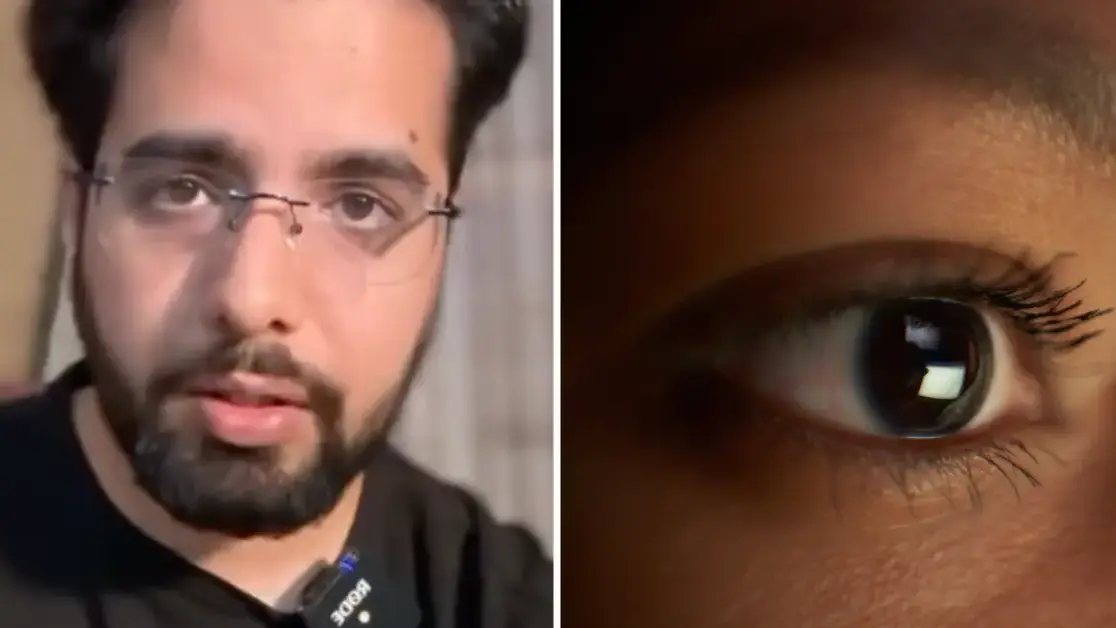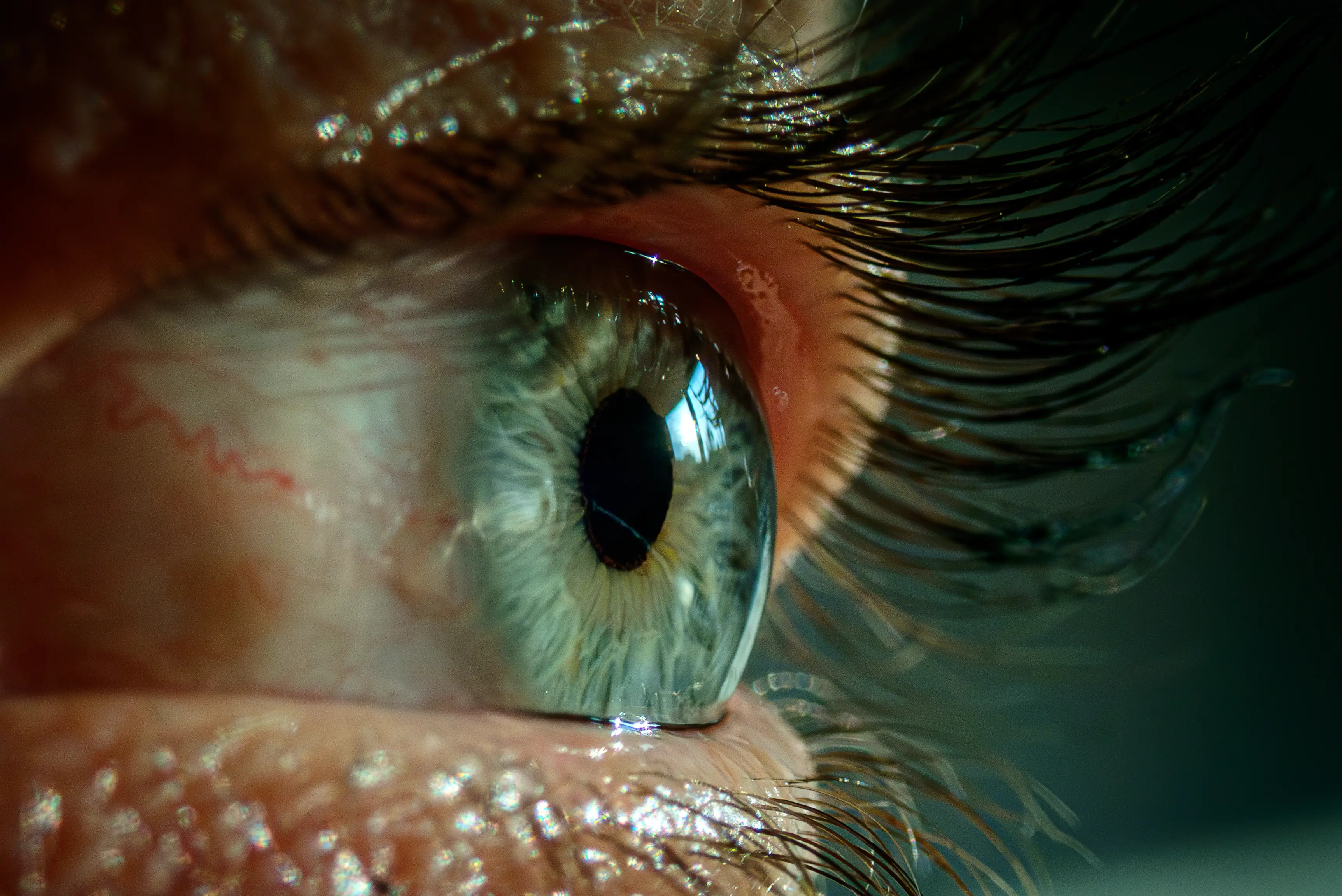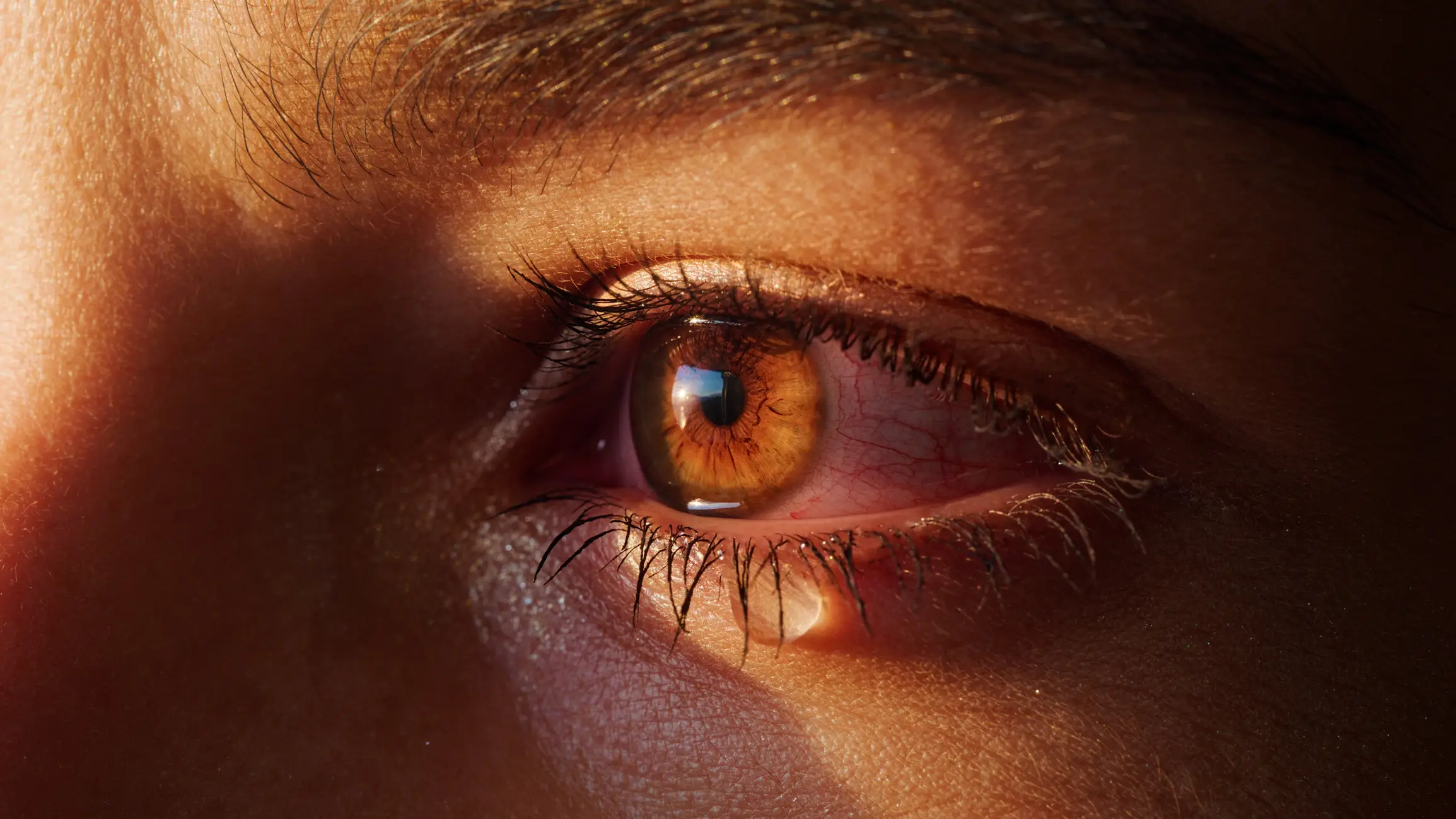
An abuse coach has revealed how to spot 'trauma eyes' after suffering from narcissistic abuse.
Now, it's estimated around one in 20 people in the UK alone have narcissistic personality disorder (NPD) but the number of undiagnosed cases could be a lot higher, according to the BBC.
Given those stats, it's clear many people are extremely fascinated by the condition alongside all the terminology that comes with it.

Advert
Now, we already know all about 'gaslighting', 'narcissistic hoovering' and 'stonewalling' - but what are 'trauma eyes' and how do victims of narcissists get them?
Taking to Instagram to share the 'difference' between eyes which have experienced abuse and eyes which have not, abuse coach Danish Bashir (@narcabusecoach) explained: "This is how trauma eyes can look like after narcissistic abuse.
"As you may notice, one eye is smaller than the other."
According to Danish, this is because it is said that 'eyes absorb the shock' and this can sometimes manifest as 'asymmetry' in sizes.
He continued: "Now I'm not saying all those people whose eyes [are] different sizes have been through trauma, or this is the biggest indicator to tell if somebody has experienced trauma.
"This is my personal observation."

Sharing his own eyes as an example, the abuse coach pointed out: "So you see the difference between the left and the right.
"I have my right eye smaller than the left one. Why? Because I have seen shock. I have absorbed shock. I have experienced trauma."
People have since rushed into the comments to share their thoughts on Danish's video, with one Instagram user writing: "Yes not just eyes, but my jaw too got asymmetric, leading to left and right face sides being imbalanced."
Another claimed: "I literally changed eye colour! My eyes were bright blue now they are greenish grey."
And a third added: "Yup and I hate that I have it."
But can your facial features actually change following abuse?
Well, a 2020 study conducted by Swansea and Cardiff universities found the eyes of people with Post Traumatic Stress Disorder (PTSD) behave differently.
Researchers found that their pupils had an exaggerated response when viewing exciting or dangerous images.
Normally, pupil size will fluctuate with changing light levels, but it can also alter when a person is scared, excited or even focussing on something particularly intensely.
Additionally, shocking or surprising images can cause pupils to enlarge, but the researchers found this reaction was highly exaggerated in people who have experienced a traumatic event.
Professor Nicola Gray, of Swansea University, co-authored the study with Professor Robert Snowden of Cardiff University.
She said: "The pupil normally shows a fast constriction when the person sees a new image, but then the pupil gets bigger - especially if the picture is arousing, such as a scary image of, for example, fierce animals or weapons.
"However, the patients with PTSD behaved differently in both phases. First, their pupil did not constrict much when shown a new picture, and then it expanded more to the scary images than for people without PTSD."
If you are experiencing domestic violence, please know that you are not alone. You can talk in confidence to the national domestic violence helpline Refuge on 0808 2000 247, available 24/7, or via live chat, available 10am-10pm, Monday to Friday.
Topics: Advice, Life, Mental Health